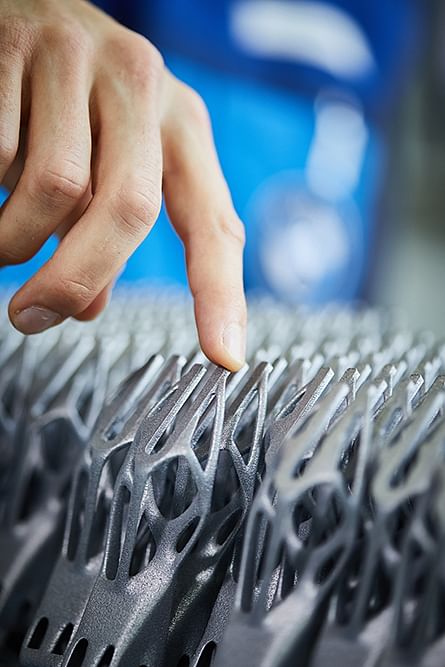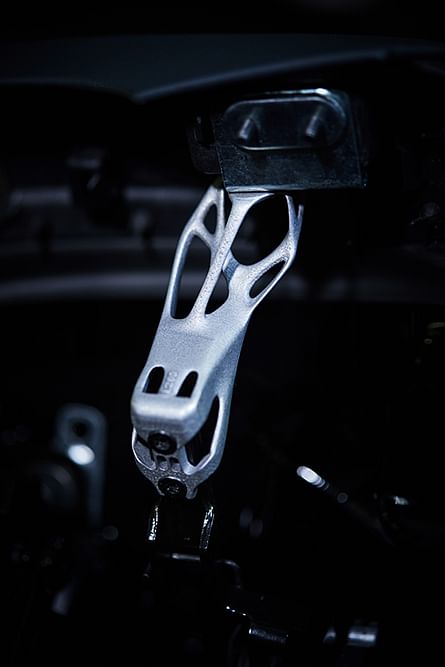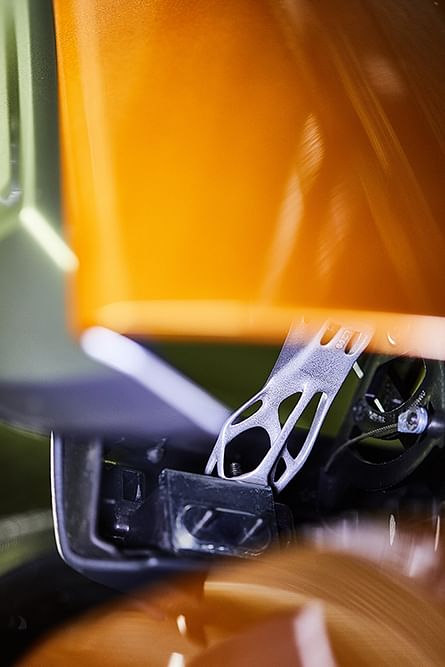BMW to leverage its 3D printing expertise at a new location
BMW to focus its entire spectrum of 3D printing expertise at a single location. It aims to benefit by developing new technologies faster.
The BMW Group is to invest more than €10 million (Rs 81 crore) in a new additive manufacturing campus. Located in Oberschleissheim, just north of Munich, the facility will allow the company to continue developing its expertise in this field of work.
Udo Hänle, head of production integration and pilot plant: “Our new additive manufacturing campus will concentrate the full spectrum of the BMW Group’s 3D printing expertise at a single location. This will allow us to test new technologies early and continue developments.”
Jens Ertel, Head of the BMW Group’s additive manufacturing centre and the future campus director, adds, “The team there will evaluate new and existing technologies in both plastics and metals printing and develop them to series maturity.”

Much of the work carried out in the new additive manufacturing campus will focus on parts manufacturing for prototype construction, series production and customised solutions. The additive manufacturing campus will also act as an interdisciplinary training and project area, for instance for development engineers. Located in an existing building with a footprint of over 6,000 square metres, it will accommodate up to 80 associates and over 30 industrial systems for metals and plastics. It is scheduled to go on stream in early 2019.
Major potential in series production for customised vehicle components
Additive manufacturing is an integral part of the BMW Group production system and harbours significant potential for series production. Additive manufacturing has been recently used to generate parts for the BMW i8 Roadster. Jens Ertel: “With the BMW i8 Roadster, the BMW Group became the first carmaker to 3D-print a production run of several thousand metal parts. The component concerned is a fixture in the tonneau cover for the soft-top.” Made of aluminium alloy, the printed item is lighter than the normal injection-moulded equivalent but significantly more rigid. Its ‘bionic’ geometry, inspired by forms found in nature, was optimised for 3D printing purposes.

Additive manufacturing is also gaining importance for customised components. The new MINI Yours Customised programme, for example, allows customers to design certain components themselves. Indicator inlays and dashboard trim strips, for instance, can be 3D-printed to their precise specifications.
Decentralising manufacturing – production follows the market
Jens Ertel said,“The 3D printers that are currently operating across our production network represents the first step towards local part production. We are already using additive manufacturing to make prototype components on location in Spartanburg (US), Shenyang (China) and Rayong (Thailand). Going forward, we could well imagine integrating it more fully into local production structures to allow small production runs, country-specific editions and customisable components – provided it represents a profitable solution.”
Investments through BMW i Ventures
In September 2016, the BMW Group’s venture capital arm, BMW i Ventures, invested in the Silicon Valley-based company Carbon, whose DLS (digital light synthesis) printing technology was a breakthrough in the production of parts with high-quality surfaces. The technique allows significantly larger areas to be processed more rapidly than would otherwise be possible with conventional selective 3D printing. Carbon and the BMW Group have been partners since 2015.
A further investment in additive manufacturing came in February 2017, this time in the start-up Desktop Metal. Desktop Metal specialises in the additive manufacturing of metal components and has developed highly productive and innovative methodologies. It now works closely with the Additive Manufacturing Centre at the BMW Group.

In June 2017 the BMW Group invested in a company called Xometry, which works in the supply chain industry. Xometry is a web-based platform that networks suppliers and manufacturers from different sectors with each other. Pilot projects are already underway in a range of areas including spare parts manufacturing.
Digital production methods for vehicle development and manufacturing
Additive manufacturing has been in use in the construction of concept cars at the BMW Group since 1991. Components are realised purely using digital data, eliminating the need for classic tools such as press tools and injection moulds. At present, the technology is most commonly used for small production runs of customised and often highly complex components.
RELATED ARTICLES
Horse Powertrain reveals hybrid conversion for electric cars
Engine-making joint venture of Geely and the Renault Group announces new hybrid powertrain that fits into the same space...
Aisin to produce hybrid motor for Mitsubishi in Thailand
The hybrid drive motor and gearbox, will be produced at Aisin Powertrain (Thailand) Co for use in the Mitsubishi XForce ...
GM reports strong Q1 sales in China, demand for EVs and hybrids surges 53%
General Motors and its joint ventures in China have sold more than 442,000 units between January and March 2025.






 By Autocar Professional Bureau
By Autocar Professional Bureau
 17 Apr 2018
17 Apr 2018
 4994 Views
4994 Views









